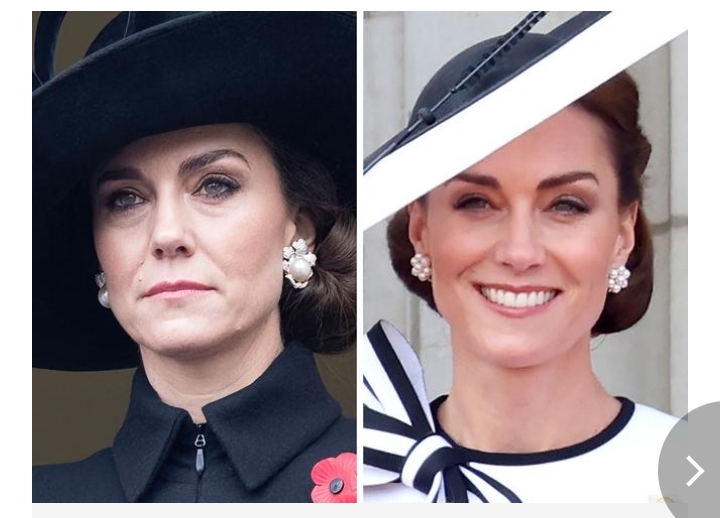CELEBRITY
Dark side of Princess Kate’s comeback

After the Princess of Wales’ return to public view recently a new and toxic theory is taking over social media about her condition.
If ever there was a moment you might wish you owned a hazmat suit, this is it. Or at least some of those extra long gloves that you see country vets because today’s dispatch from the frontlines of the royal world is nothing short of truly gross.
A new, revolting theory about Kate, the Princess of Wales’ six month absence from public life is spreading across X, formerly Twitter, in an instance of heinous social media contagion.
Consider yourself warned.
Kate, a slew of accounts are alleging, is not currently battling cancer and undergoing chemotherapy but has actually been making that all up to cover up the fact that she has had a facelift. The ‘proof’, it is argued, is how relatively well the princess appeared at last weekend’s Trooping the Colour, her first official engagement of the year after revealing her shocking diagnosis in March.
Images of the smiling princess, be-hatted and be-frocked, showing no obvious signs of hair loss, and looking similar to the last time she stepped out in public on royal manoeuvres in December last year are being interpreted as ‘evidence’ that the 42-year-old is, in fact, fine and something nefarious has been going on.
Look, I’m not going to waste the seconds required to furiously type away at my keyboard about why this is nothing short of sickening.
However, what makes this latest situation much harder to ignore is the fact that many of the accounts posting these claims are supporters of Prince Harry and Meghan – two people who have made combating online hate and countering disinformation central to their charity work.
In 2020 the duke penned an essay for Fast Company, writing: “The digital landscape is unwell” and said that online platforms had contributed to “a crisis of hate, a crisis of health, and a crisis of truth.”
In a 2021 interview with the same publication on the issue he said that “time is running out…We are losing loved ones to conspiracy theories” and that “the magnitude of this cannot be overstated”.
The same year he was appointed to the Aspen Institute’s Commission on Information Disorder.
Last October, the Sussexes’ Archewell Foundation hosted a summit for parents about “Mental Wellness in a Digital Age” and they currently list “Supporting families…to safeguard against online harms” as one the Foundation’s key areas of current work.
The charitable outfit is also a founding member of The Responsible Technology Youth Power Fund which supports young people who are “stewarding a tech ecosystem which safeguards human rights.”
All of this work being is hugely important and should be applauded – but is patently not compatible with what is being done by some of their supporters online.










